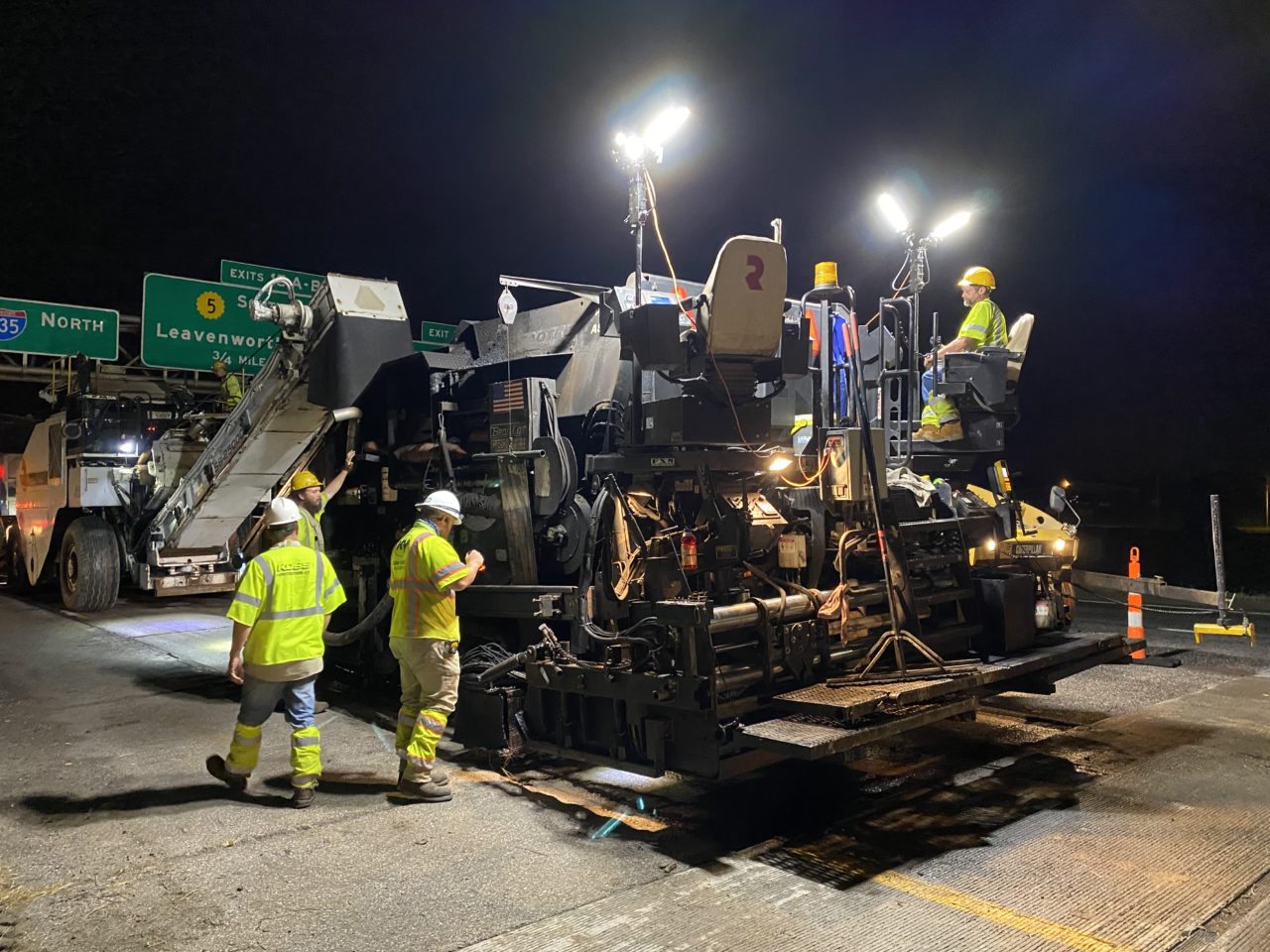What is a Mill and Overlay?
After years of wear and tear, asphalt highways often need resurfacing. Mill and overlay projects, also known as “mill and fill” projects, are a popular process to rejuvenate asphalt roads and provide a new, smooth road for the traveling public.
Kaw Valley Engineering has worked on many mill and overlay projects, providing third-party quality assurance and quality control. In 2020, our firm worked on a Kansas Department of Transportation mill and overlay project in Wyandotte County, Kansas, administered by the KDOT Bonner Springs office.
Ron Johnson, PS, CWI, Quality Control Manager in our Junction City office, worked nights on the mill and overlay project. He provided the step-by-step process of a mill and overlay.
- During a mill and overlay, the old asphalt is milled off. Projects vary on how much asphalt is milled off, but it is usually 0.5” to 2”.
- The millings are hauled away to a nearby asphalt plant, and the roadway is swept and cleaned of any excess material and loose debris.
- Tack oil is placed on the road to help bind the new asphalt to the existing road.
- The hot mix asphalt is hauled from the asphalt plant to the site using a “shuttle buggy,” which remixes the asphalt to prevent separation of the material. The material is fed into an asphalt paving machine.
- The asphalt is placed in a uniform manner with a vibrating screen. Steel rollers compact the asphalt to make an even and smooth finish with adequate density.

On projects like these, Kaw Valley Engineering inspectors serve as quality assurance for the contractors. Quality assurance verifies the construction project is completed per plans and specifications of the project. Inspectors prevent overuse of millings and that the proper asphalt oil is used at the correct rate, among other specifications.
During mill and overlay projects, inspectors verify the asphalt is a uniform width, length and depth; that it is the correct temperature during placement and compaction; and that it is being placed at the correct spread rate.
We are proud of our inspectors who provide materials testing and construction inspection services for many mill and overlay projects. If you would like to contact us for materials testing and inspection services, please click here. Read more about the I-435 mill and overlay project here.
